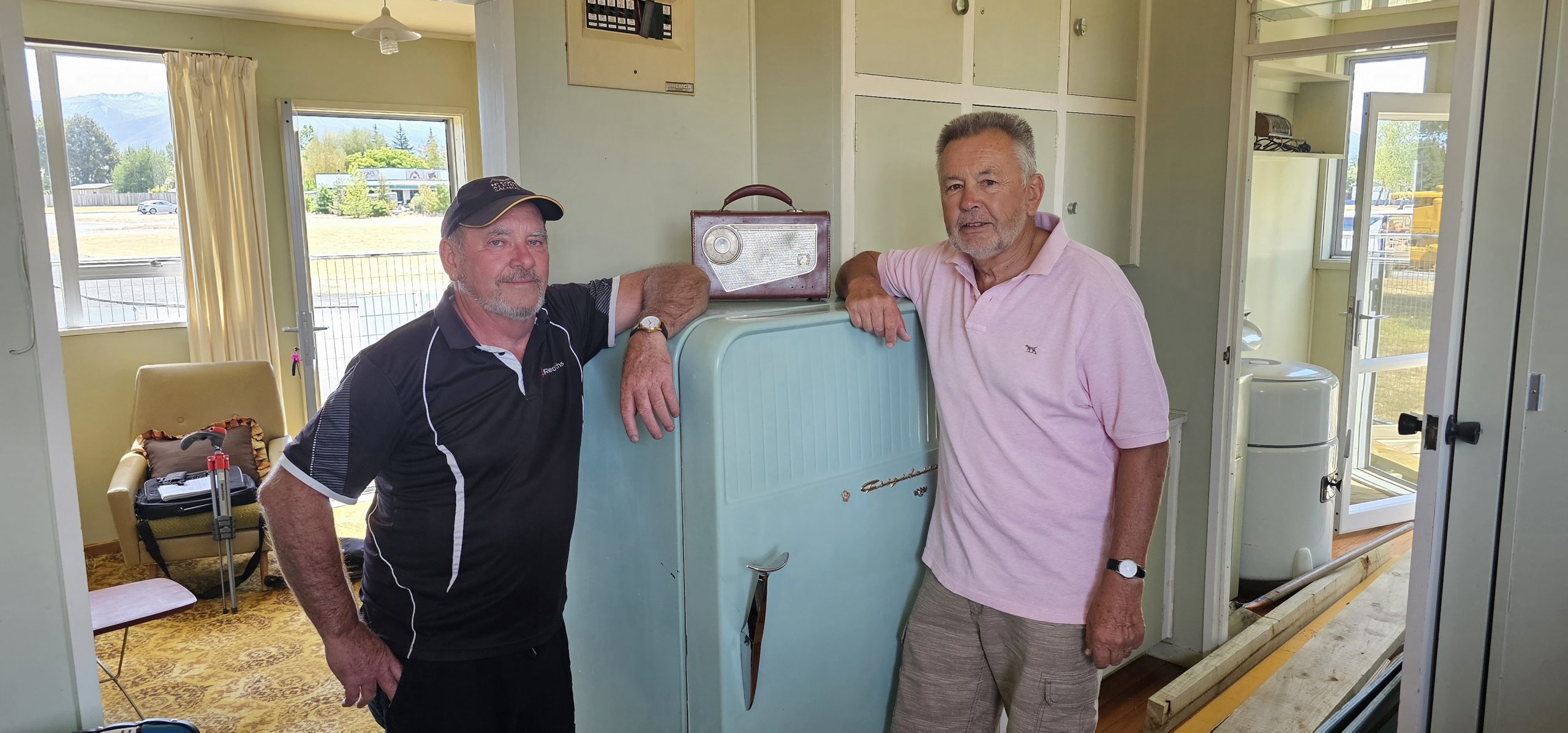A Twizel house trapped in time is set to provide a permanent snapshot of the town’s hydro glory days.
Building on previous projects like the heritage trail and the painting and display of hydro-era machinery, the Twizel Heritage Group is now kitting out a standard 76 sqm Ministry of Works ‘‘Reg 130’’ house, right down to the utensils found in the kitchen drawers.
Project co-ordinator Rick Ramsay said he was extremely grateful to have had the house given to the group.
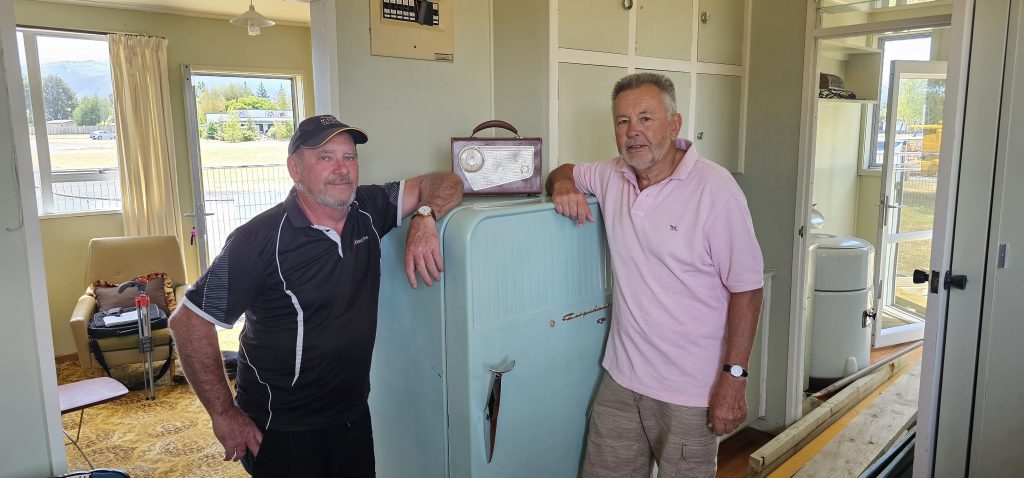
‘‘The project started when local identity Frank Hocken came to see me and told me he knew of a house that was available for nothing and that should be put in the front of town and utilised as some form of museum.
‘‘We made contact with the lady who owned it, Sue Rattray. Her family had owned it for quite a number of years and had used it as a holiday home.
‘‘The key thing about it was that it was largely unchanged from the Ministry of Works ‘‘Reg 130’’ specifications, with the exception of changing out some doors. We had to make a decision then and there about whether we were going to have a crack at it or not.’’
A proposal was then put forward to Mrs Rattray, which was promptly accepted.
The group had great community support from the start, Mr Ramsay said.
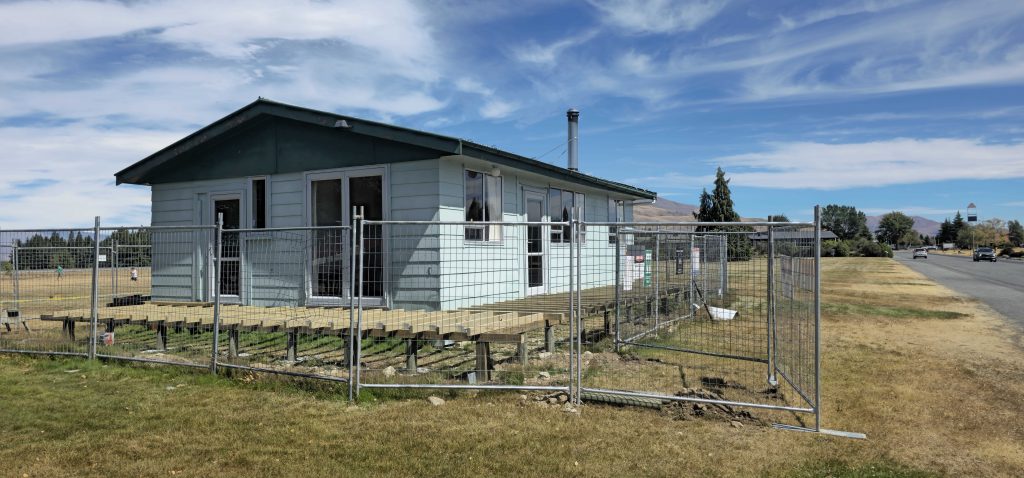
‘‘We were given $7000 by the Hocken-owned property company, Mackenzie Properties, and that gave us a bit of a start and away we went. ‘‘The council gave us $10,000 but unfortunately that went right back to them in the resource consent building permit fees.’’
He said a big help to the project was receiving funds from the Meridian Power Up fund, which had supported them in the past with their machinery and trail work, as well as a lot of help from local trade companies.
The house was shifted to Wairepo Rd in March last year, placing it front and centre at the town’s entrance.
Work continued through the year with the house secured to the piles and the skirt put around the bottom and before Christmas they had all the piles and bearers on to begin the decking for a viewing platform.
In an effort to recreate the house ‘‘as it was’’, great care went into finding and selecting the correct materials to go inside, Mr Ramsay said.
‘‘Hand in hand with the building was obtaining the correct materials for display within the house that fit the period of just before 1968 through to 1984, which is the Twizel town timeline.’’
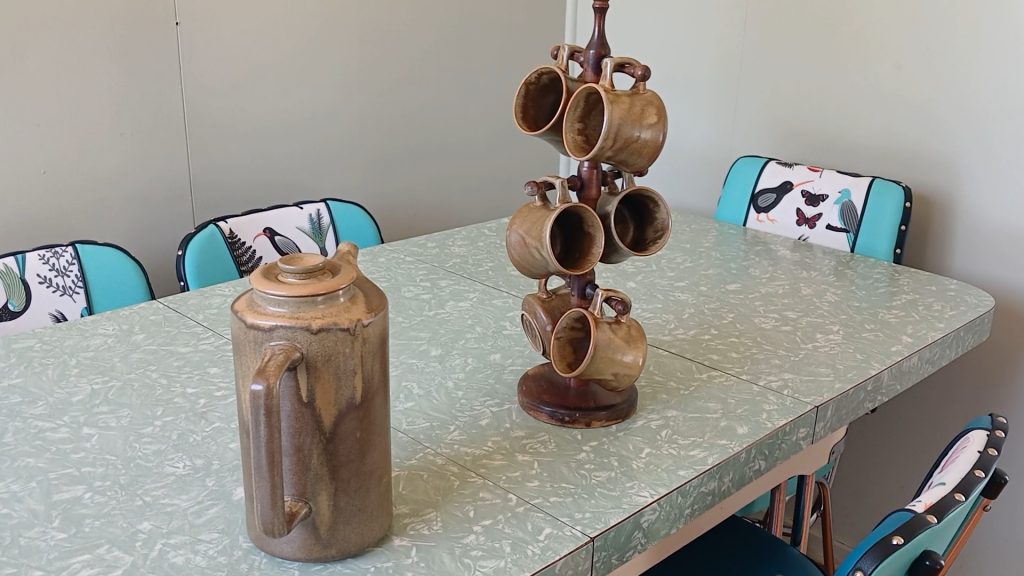
Mr Ramsay, a Twizel resident himself since 1977, said there had also been a lot of guidance on what to obtain from former residents.
‘‘It’s sort of snowballing now that they see the progress and we’ve been finding bits and pieces that belong in a Twizel house.
‘‘We obtained a period lounge suite from not too far away, the painting above it is appropriate for the house and we have secured some other paintings that just about everyone in Twizel would have had.
‘‘One of the bedrooms still has the original Ministry of Works wallpaper on the wall and the carpet came out of the project’s office — it’s over 50 years old.’’
The house also features instantly recognisable pieces from the era such as a wringer washing machine, a K9 TV set, spring single beds with candlewick bed spreads, a Formica table, Temuka Pottery mugs and a three-ring stove.

Mr Ramsay said his favourite piece was a cooking utensil set they had bought for quite a pretty penny.
‘‘We paid quite a lot for it. The second-hand store said they hadn’t seen another complete set for eight years.
‘‘We put up a photo on Facebook and everyone went ‘we had those’ or ‘my mum had those’.
‘‘A lot of people are now coming forward with other treasures and donating them, which is really neat.
‘‘The ultimate aim is you could have walked in here and lived in it.’’
He said the significance of the project was that a lot of the old Twizel houses had been modified over time.
‘‘They’d already had the kitchens ripped out or the bathrooms redone and so on.
‘‘We thought this was the golden opportunity to demonstrate to people how this massive power project was done with the workforce of a couple thousand people and this is how they lived.’’
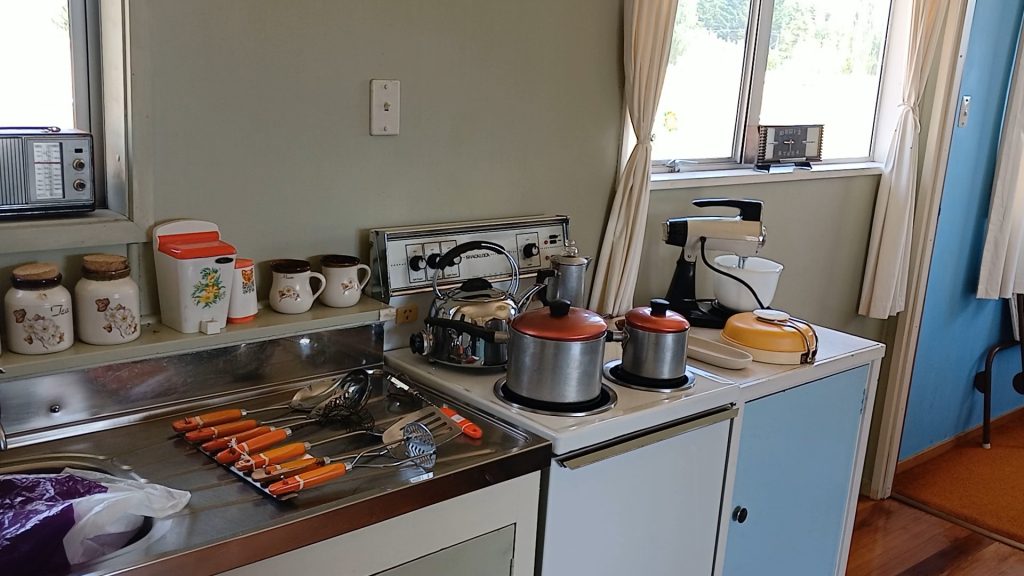
Project manager Ivan Stratford said they were aiming for a February opening.
‘‘We won’t be far from opening it up for everybody as a static display. Everyone will be able to look in the windows and see what we’ve achieved.’’
Unfortunately, due to issues around public access, the building will not be open for the public to be able to physically walk through.
A platform is being built around the building which will still allow 90% of what is inside to be seen.
Mr Stratford said it had been a real community project and the response from the community had been amazing.
‘‘It’s a huge asset, between this and the machinery. We look at the numbers that are stopping now. We think it’s huge — there’s nothing but support.’’
He wished to acknowledge the big team they had behind them and especially the generosity of Mrs Rattray for providing the building when it could have been sold for removal.
Once the house is completed the Twizel Heritage Group plans to turn its attention back towards machinery and will continue preserving Twizel’s history as a construction town.


